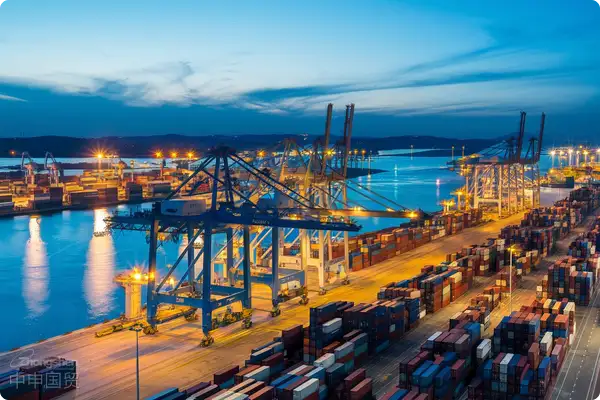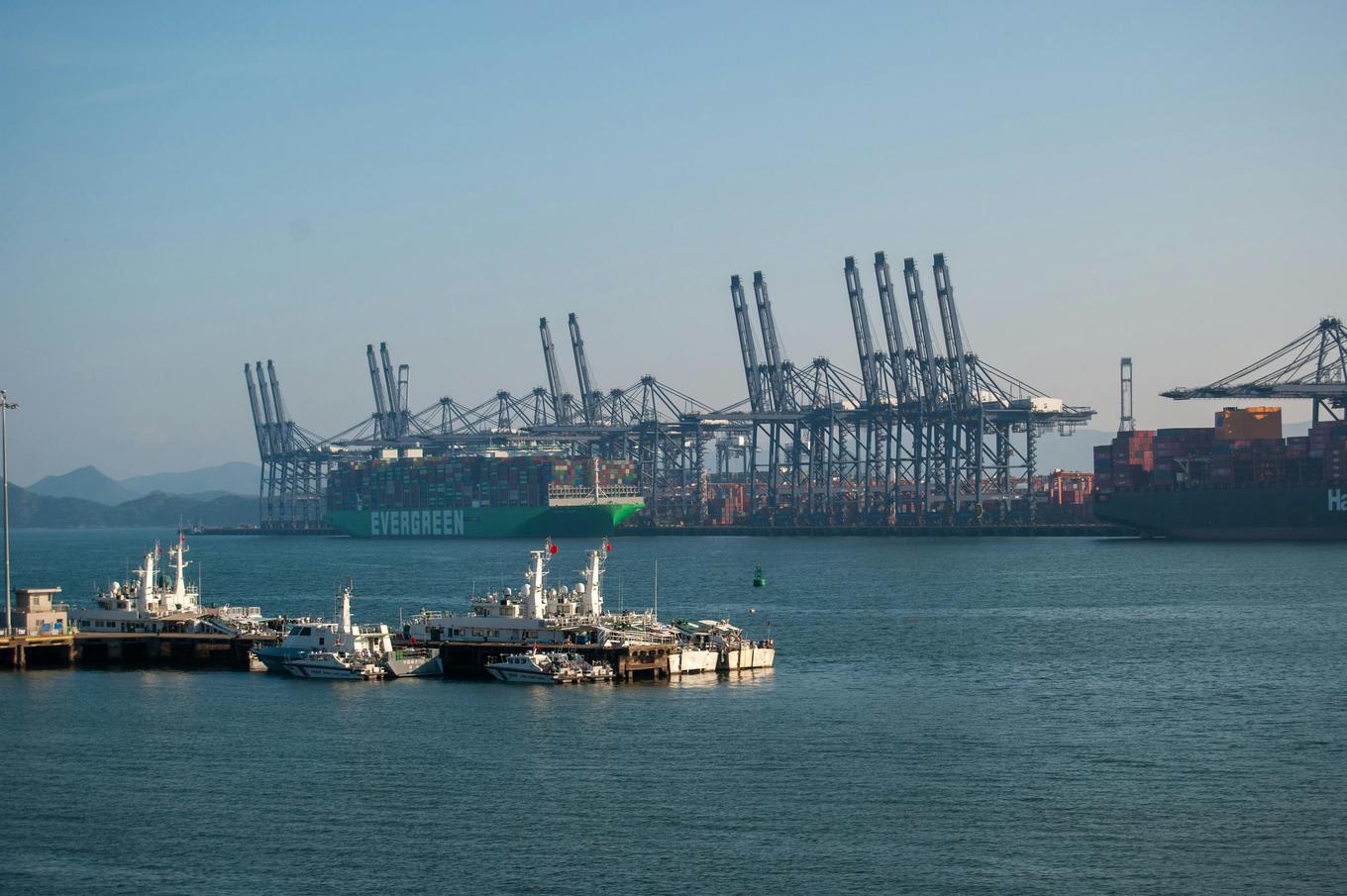- Shanghai Zhongshen International Trade Co., Ltd. - Two decades of trade agency expertise.
- Service Hotline: 139 1787 2118

Introduction
In the increasingly active global trade, the imported thermal clothing market holds tremendous business opportunities. Whether its the Russian market coping with cold winters or parts of the Southeast Asian market affected by seasonal climates, thermal clothing has its specific demands. For businesses and professionals engaged in importing thermal clothingforeign tradebusinesses and practitioners need to understand and master professionalimport and exportprocesses, address international trade challenges, and seize opportunities, which is crucial.ZhongShen International TradeAs a professional foreign trade agency, we possess extensive experience and unique advantages in this field. Below we will provide you with a detailed interpretation.
Professional document handling and logistics arrangement capabilities
Documentation Processing
The document processing for importing thermal clothing is a rigorous and critical task. In international trade, documents serve as the identity cards of goods, and ensuring their accuracy is fundamental for smooth customs clearance. First is the commercial invoice (Commercial Invoice), which records core information such as product descriptions, quantities, and values, serving as an important basis for customs taxation. Our professional team at ZhongShen International Trade will carefully verify invoice details to ensure consistency with actual goods, avoiding delays or fines due to discrepancies.
The Bill of Lading is another indispensable document. It serves as a receipt issued by the carrier upon receiving or loading the goods and also as proof of the transportation contract. We assist clients in selecting reliable carriers and ensure the accuracy of details on the bill of lading, such as shipper, consignee, cargo description, and shipping terms. Notably, with the increasing adoption of digital trade, electronic bills of lading are becoming more common. Keeping pace with the times, we are proficient in handling electronic bills of lading to ensure efficient coordination between cargo transportation and document flow.
The Packing List provides detailed information about the contents of each package, including quantities, specifications, and weights. This is crucial for customs inspections and consignee verification. We accurately prepare packing lists based on actual packaging to ensure they correspond precisely with the goods.
Logistics Arrangement
The logistics process directly impacts whether goods arrive on time and safely at their destination. For importing thermal clothing, selecting the appropriate transportation method is essential. If the cargo volume is large,Maritime Transportationis usually the more economical choice. When opting for sea freight, we consider factors such as sailing schedules, freight costs, and shipping company reputation. Currently, many major shipping companies offer stable route services, but their advantages vary across different routes. For example, when shipping to certain Southeast Asian ports, regional carriers may offer more competitive pricing and services, while for Russian ports, well-known international shipping companies are often preferred due to their extensive networks and superior service quality.
If the goods are urgently needed,Air Transportationis a quick solution. However, air freight costs are relatively high, requiring a balance between cargo value and delivery speed. We maintain strong partnerships with major airlines, enabling us to secure reasonable freight rates and cargo space for clients. Additionally, we track shipments in real-time to ensure safety and punctuality during transit.
After goods arrive at the destination port, customs clearance cannot be overlooked. We are familiar with the customs clearance requirements and processes of various countries and can assist clients in preparing complete documentation to ensure smooth clearance. For special situations such as customs inspections or tax disputes, our extensive experience allows us to communicate and coordinate effectively with customs to resolve issues promptly.
Russian market: VTBFX Settlement AgencyAdvantages
When trading thermal clothing imports with Russia, foreign exchange settlement is a critical step. Russias financial system has unique characteristics, and our ZhongShen International Trade offers VTB foreign exchange settlement convenience for the Russian market.
Foreign exchange settlement, simply put, is the process of converting foreign currency earnings from exports into domestic currency. In trade with Russia, VTB Bank (Vneshtorgbank) is a highly influential financial institution. By partnering with VTB Bank, we can provide clients with more convenient and secure foreign exchange settlement services.
The specific process is as follows: After goods are exported to Russia and delivered, the Russian importer makes payment to their VTB Bank account. As a foreign trade agent, we assist clients in preparing relevant settlement documents, such as commercial invoices, bill of lading copies, and contracts, which are submitted to VTB Bank. Upon verifying the documents, VTB Bank converts the foreign currency into RMB at the current exchange rate and transfers the funds to the clients designated domestic account.
This VTB Bank settlement method offers the following advantages compared to other channels. First, VTB Bank has an extensive branch network and a robust clearing system in Russia, ensuring fast fund transfers. Second, due to its standing in the Russian financial market, it is more familiar with local trade regulations and financial policies, effectively mitigating settlement risks arising from policy changes or regulatory unfamiliarity. This provides significant convenience for clients trading thermal clothing imports with Russia, ensuring timely and secure fund recovery.
To address the complex and ever-changing trade regulations and policies in the Southeast Asian market, ZhongShen International Trade provides professional solutions for clients. During the market research phase, the company leverages its rich market resources and data analysis capabilities to provide accurate market information, helping clients formulate reasonable procurement plans. When applying for import licenses, the companys familiarity with local regulations assists clients in preparing and submitting relevant documents to ensure smooth approval. During customs clearance, close collaboration with local customs brokers enables quick and efficient clearance, reducing cargo detention time at ports. Additionally, for trade barriers such as high tariffs or quota restrictions in some countries, ZhongShen International Trade employs reasonable trade strategies, such as leveraging suitable free trade agreement benefits or optimizing product classification, to help clients reduce import costs.
Import Process
When importing thermal clothing from Southeast Asia, the first step is market research and supplier screening. Southeast Asia has numerous garment manufacturers, each differing in product quality, pricing, and production capacity. Leveraging our market resources and experience, we assist clients in identifying suitable suppliers. After selecting a supplier, both parties sign a trade contract specifying key terms such as product specifications, quantities, pricing, delivery schedules, and payment methods.
Next comes the production and inspection phase. To ensure product quality meets requirements, we arrange third-party inspections per the contract terms. Once the goods pass inspection, the supplier arranges transportation. As mentioned earlier, we select the appropriate shipping method based on the actual cargo situation.
After goods arrive at the destination port, customs clearance begins. Customs clearance requirements vary across Southeast Asian countries but generally require basic documents such as commercial invoices, bills of lading, and packing lists. Additionally, some countries may require aIt is recommended to verify through the following methods:(Certificate of Origin) to determine the goods country of origin and apply corresponding tariff policies. For example, when trading with ASEAN countries, goods complying with the China-ASEAN Free Trade Agreements rules of origin may qualify for preferential tariffs. We proactively research each countrys specific customs requirements and assist clients in preparing complete clearance documentation to ensure smooth customs processing.
Solutions
During the process of importing thermal clothing from Southeast Asia, some common issues may arise. For instance, weaker infrastructure in certain Southeast Asian countries may lead to shipping delays, while some suppliers limited production capacity or quality control may affect timely delivery and product quality. To address these, we have a range of solutions.
For shipping delays, we plan transportation routes in advance, select reputable logistics providers, and track shipments in real-time. If delays are anticipated, we promptly communicate and coordinate with relevant parties to take measures such as changing shipping methods or adjusting delivery schedules to minimize impact on clients operations.
For supplier production and quality issues, we conduct rigorous on-site inspections and background checks during supplier screening to assess their production capacity and quality control systems. We clearly define quality standards and liability for breaches in contracts, strengthen production monitoring, and maintain regular communication with suppliers to ensure timely and quality deliveries.
Current international trade situation: challenges and opportunities
Challenges
The current complex and volatile international trade landscape presents numerous challenges for the thermal clothing import business. Rising trade protectionism is a notable issue, with some countries imposing higher tariffs or trade barriers to protect domestic industries. For example, certain countries levy high tariffs on imported thermal clothing, directly increasing import costs and reducing product competitiveness in local markets.
Exchange rate fluctuations are another major challenge. Global economic instability leads to frequent currency volatility. For thermal clothing imports, the time between contract signing and foreign exchange settlement creates exposure to potential exchange losses. For instance, if the RMB appreciates, the USD-denominated import cost remains unchanged, but the actual RMB amount received upon settlement decreases.
Additionally, the ongoing impact of the pandemic introduces uncertainties in international trade. Issues such as port congestion, rising logistics costs, and supply chain disruptions occur frequently. For example, some ports experience reduced efficiency due to pandemic control measures, leading to prolonged vessel stays and increased logistics costs and delivery risks.
Opportunities
Despite these challenges, the current international trade environment also presents opportunities. With gradual global economic recovery, consumer demand for thermal clothing continues to grow, especially in emerging markets. For example, Southeast Asias rapid economic development and expanding middle class are driving increasing demand for high-quality thermal clothing, creating vast market potential.
The growth of digital trade is another significant opportunity. Advances in internet technology have enabled more trade activities to occur on online platforms. This not only improves trade efficiency and reduces transaction costs but also opens new channels for market expansion. For example, throughCross-border E-commerceplatforms, businesses can directly sell imported thermal clothing to global consumers, breaking traditional geographical trade barriers.
Meanwhile, countries around the world are actively promoting the signing and implementation of free trade agreements to facilitate economic recovery. For instance, the entry into force of the Regional Comprehensive Economic Partnership Agreement (RCEP) has created more favorable conditions for trade among member states by reducing tariffs and trade barriers, which benefits the circulation and sales of imported thermal clothing within the region.
Product certification services
In the process of importing thermal clothing, product certification is a crucial step to ensure compliance with the regulations and standards of target markets. Different countries and regions have varying certification requirements for thermal clothing. For example, Russia has its own GOST certification system with strict regulations on the safety and quality of thermal clothing; in Southeast Asia, some countries may require compliance with local textile standard certifications.
Although Zhong Shen International Trade does not directly provide certification services, we fully inform clients of the required certifications and assist them in the application process. We are well-versed in the certification regulations and procedures of various countries and can provide detailed certification consulting services. During the certification process, we help clients prepare relevant documents and coordinate with certification bodies to ensure smooth progress. This not only guarantees that clients imported thermal clothing meets target market requirements for smooth market entry but also saves clients time and effort, allowing them to focus on core business.
Conclusion
The import thermal clothing trade business faces both challenges and opportunities in the current complex international trade environment. Leveraging our professional documentation handling and logistics arrangement capabilities, VTB settlement advantages in the Russian market, extensive import-export process experience and solutions in Southeast Asian markets, and assistance with product certification matters, Zhong Shen International Trade provides comprehensive and professional services to clients engaged in the import thermal clothing trade, supporting their steady growth in the international market. Whether adapting to market changes or seizing business opportunities, we will work hand-in-hand with clients to overcome challenges and achieve mutual success.
Related Recommendations
? 2025. All Rights Reserved. Shanghai ICP No. 2023007705-2  PSB Record: Shanghai No.31011502009912
PSB Record: Shanghai No.31011502009912










